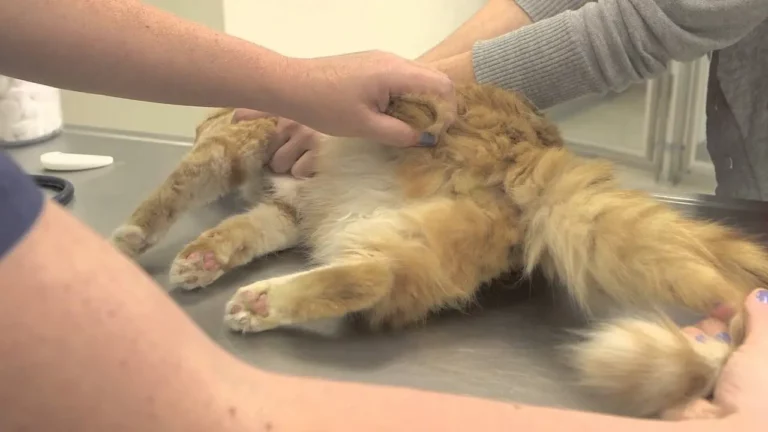Should You Let Your Cat Sleep in Your Bed? The Shocking Truth About Sleeping With a Cat
I’ve always wondered if letting my
On one hand, it’s incredibly comforting to have that warm, purring bundle of fur right next to you.
On the other hand, I’ve heard mixed opinions about whether it’s actually healthy for either of us.
Turns out, the science behind this cozy habit is more complicated than I thought.
From potential health risks to benefits like reduced stress and anxiety, there’s a lot to consider.
Let’s jump into the research and find out what experts have to say about sharing our beds with our cats.
Examining the Human-Cat Bond
The bond between humans and their cats is deep-rooted.
As a vet, I’ve seen first hand how these connections impact both physical and emotional health.
The Role of Cats in Human Lives
Cats have been companions for thousands of years.
They aren’t just pets but part of our families.
Historically, they kept pests away, but today’s cats offer much more than practical benefits.
They’re sources of comfort and companionship. Many people talk to their cats, share personal moments, and even read their moods based on their catfriends’ behavior.
From my experience, I see that cats help with loneliness and provide routine.
For instance, feeding time or play sessions create structure in our day-to-day lives.
Plus, having a
Emotional Benefits of Cats as Bed Partners
Sleeping with your
When your
This isn’t just anecdotal; numerous studies back it up.
People often report lower stress levels when sleeping with their cats.
But, there’s something special about those nightly cuddles beyond stress relief.
It fosters trust between you and your pet.
If your
In my practice, I’ve noticed clients who let their cats sleep in bed often describe feeling less anxious and more content overall.
And isn’t that what we all want?
To end the day feeling calm and loved?
But remember this—every
Whether or not you should let your
The Science Behind Cats in Beds
Ever wondered if letting your
There’s quite a bit of science behind it.
Allergies and Hygienic Concerns
Letting your
Cat dander is one of the most common allergens people face.
If you or anyone in your household suffers from allergies, this can spell trouble. Dander, tiny skin flakes cats shed, often gets embedded in bedding and mattresses.
This can trigger allergic reactions like sneezing, itchy eyes, or even asthma attacks.
Then there’s hygiene to think about. Cats are pretty clean creatures; they spend around 30% of their day grooming themselves. But, they do use litter boxes and roam outside at times.
They could bring dirt or pathogens into your bed that you might not want close to where you sleep.
Impacts on Human Sleep Quality
Now let’s talk sleep quality. Sharing a bed with your catfriend isn’t always restful.
Cats are nocturnal by nature; they become active during nighttime hours while you’re trying to catch some Zs.
I’ve had clients complain about being woken up by playful pouncing or incessant meowing at 3 AM.
But it’s not all bad news! Many people find comfort in having their pet nearby, which can help them fall asleep faster or feel more secure during the night. It varies based on the individual and their relationship with their
So there you have it, a mix of pros and cons when considering whether to let your
Health Implications for the Cat
When it comes to letting your
Physical and Psychological Effects on Cats
Cats love comfort just like we do.
A cozy bed can provide them with warmth and security. But there’s more to consider. Ever notice how cats have their little routines?
Disrupting these can lead to stress or anxiety. If your
But, if they’re already used to snuggling up next to you, they probably find it soothing.
Then there’s the physical side of things.
Cats are generally quite adaptable, but sharing a bed means they’re exposed to our movements throughout the night. Constant shifting might disturb their sleep cycles, potentially affecting their overall health.
And don’t forget about those nighttime bathroom trips—if you’re always getting up, your
Safety Issues for Bed-Sharing Cats
Safety is another important piece of this puzzle. Beds can be risky spaces for small animals, especially if you’re a restless sleeper.
There’s always the chance of accidentally rolling over onto your
Young kittens or older cats with less mobility face higher risks. Kittens might get trapped under blankets or pillows, while senior cats may struggle to move away quickly if they feel threatened during sleep.
Also think about any allergies or respiratory issues either of you might have; close contact every night could exacerbate these problems for both parties.
So there you have it—some food for thought from me as a vet and fellow pet lover.
Balancing comfort with consideration for both you and your furry friend’s needs will help create a happy sleeping environment for everyone involved.
Veterinarian Perspectives on Bed-Sharing
Veterinarians often get asked about the pros and cons of letting cats sleep in human beds.
The answer isn’t straightforward, because it depends on several factors.
Professional Advice on Cats Sleeping in Human Beds
From a veterinary standpoint, bed-sharing with your
Considerations range from health issues to behavioral aspects.
First off, let’s talk about health.
Cats are generally clean animals, but they can carry parasites like fleas or ticks. They also shed dander, which might trigger allergies.
If you’re someone who sneezes at the sight of a
But it’s not all doom and gloom! There are plenty of upsides too.
Many people find their stress levels drop when their
Behaviorally, cats are social creatures that enjoy being near their humans.
Allowing them to sleep in your bed can strengthen the bond between you two. But, some cats might become overly attached or even territorial over “their” spot in your bed.
Precautions for Cat Owners
If you’ve decided to let your
- Regular Vet Check-ups: Make sure your
cat is free from parasites and illnesses through regular veterinary care. - Cleanliness: Wash your bedding frequently to minimize allergens and dirt.
- Safe Sleep Environment: Ensure there’s nothing harmful that the
cat might accidentally ingest or get hurt by in the bedroom. - Monitor Behavior: Keep an eye out for any signs of aggression or anxiety related to sleeping arrangements.
- Personal Health: Evaluate your own health conditions; if you suffer from severe allergies or respiratory issues, reconsider having a pet in bed.
In my experience, many owners who’ve taken these steps report positive outcomes—both they and their cats enjoy better sleep quality.
Conclusion
Deciding whether to let your
While sharing your bed with a
Taking steps like regular vet visits and maintaining cleanliness can help mitigate some concerns.
Eventually what’s most important is finding a balance that ensures both you and your
Whether it’s cuddling up at night or providing them their own cozy spot nearby, making an well-informed choice will lead to better nights for everyone involved.






